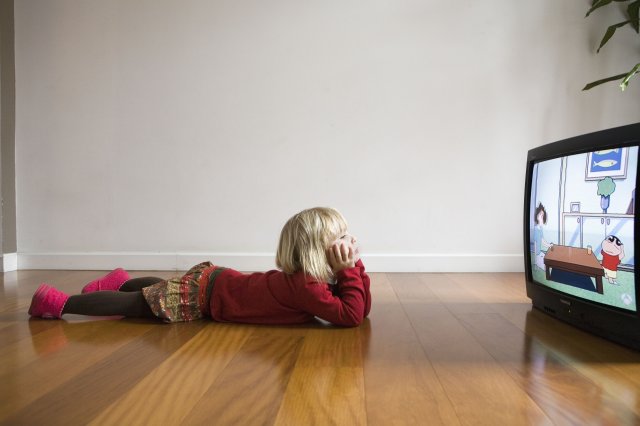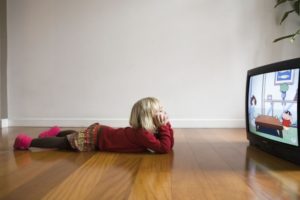
In the year that iconic children’s television programme Sesame Street celebrates its 40th anniversary, the debate over allowing pre-school children access to screen media such as children’s television programming has become more heated than ever.

With campaigners calling for parents to instigate a blanket ban on TV watching for all under-twos, and the Disney-owned Baby Einstein scheme offering a refund to parents after it was accused of making overblown claims about the value of its educational media products, it is no wonder that parents are questioning whether screen time spent watching children’s TV shows could be problematic. So what is the truth about toddlers and television?
No Television for Toddlers Under Two
In 2001, the American Academy of Pediatrics (AAP) published a paper on Children, Adolescents and Television. The paper stated that toddlers under the age of two should be discouraged from watching television, with parents advised to focus instead on “more interactive activities that will promote proper brain development such as talking, playing, singing and reading together. The AAP also recommended that screen time for older children be limited to one or two hours a day of “quality programming.”
Negative Effects of Television on Toddlers
While parents may find that turning on the television offers a quick fix distraction technique, freeing up valuable time to complete household chores or simply fix themselves something to eat, many may underestimate the effect of TV time on their toddler.
The AAP study raised concerns over the links between television viewing and health problems such as obesity resulting from inactivity, and cited too much television as a possible cause of violent behaviour in children.
A study published this year in the Archives of Pediatric and Adolescent Medicine also supported a link between television viewing and poor language development.

